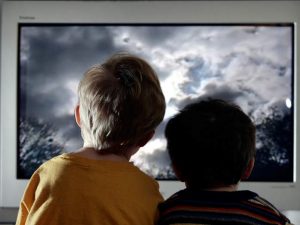
Toddlers and Television: Dora the Explorer Takes on the AAP
Like in a lot of other areas where you need advice from the experts on doing the right things for your toddler’s development, there’s a few sets of standards when it comes to how much and if any television your younger children should be watching. Of course, the academic heavy hitters like The American Academy of Pediatrics (AAP) reports children 2 years of age or older watch no more than one to two hours daily. These same experts even go so far as to say children under two watch no television at all due to their primary need for direct interaction with their parents and other caregivers for healthy development.
On the other side of the coin, there are those who prefer to deal with that other reality and set of statistics that tell us almost two thirds of infants and toddlers are exposed to television before they turn two. These folks point to the fact that another set of research clearly states 30 month olds who watched certain programs like Dora the Explorer had higher vocabularies.
Limited Research
Although there has only been limited research done on toddlers and the television they do watch, it seems logical for this group and other advocates for toddlers watching television to see the Holy Grail in parental supervision. These people also point to the limited research that shows 18 month olds responding to visual programs with words.
Those of you looking to take the middle ground will need some guidelines to make sure your toddlers get only the best of what television has to offer. Following are a few  suggestions that should help you put together some kind of viewing schedule.
suggestions that should help you put together some kind of viewing schedule.
• Take a look at where your screens are. Too often, people make the television screen the center point of family life. Instead of having it as a companion in the house chatting away while the children play or the family is eating together, consider putting it in a second floor room positioned away from day to day activities. If you need to leave it where all the other action is, think about buying a cabinet so it is turned off and out of sight during certain times.
• You should never use television or videos as a way to babysit your child. In fact, watching along with your toddler is a great way to monitor what they are seeing since programs with a lot of random activity will only wind up confusing them in the end. The best shows for young children to watch involve inspiring them to say words, sing, dance and get interactive.
Encouraging your toddler to ask questions will keep them from tuning out. With commercial television, talking about the distinctions between the ads and the show will help them to clarify the differences. You should also try and extend the lessons learned from the shows they watch. Making a game of finding the number three after seeing it on Sesame Street will help to encourage your child and steer them toward educational programming later in life.
Read more info like this at All My Children.
Author: Rob Starr